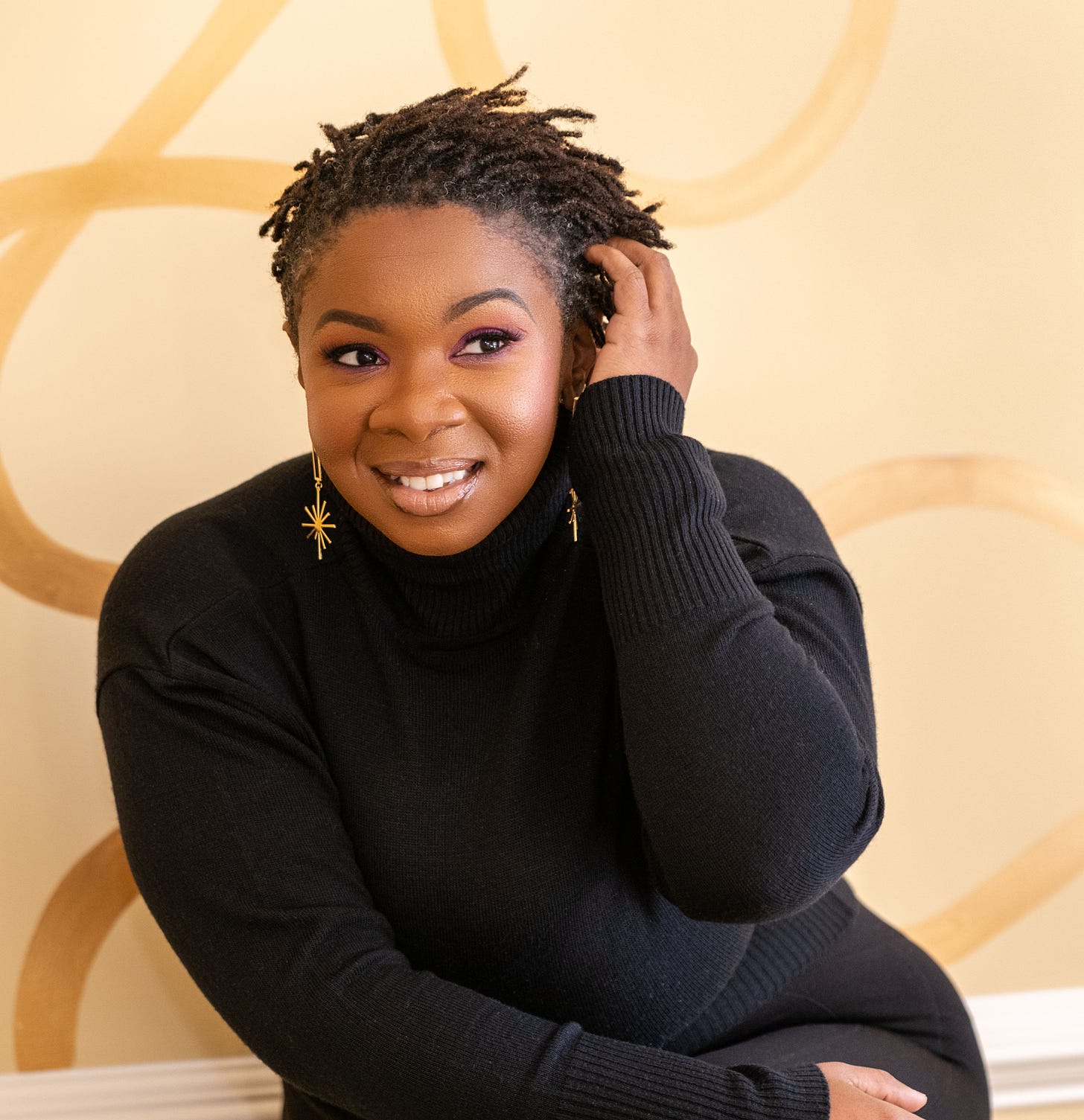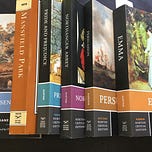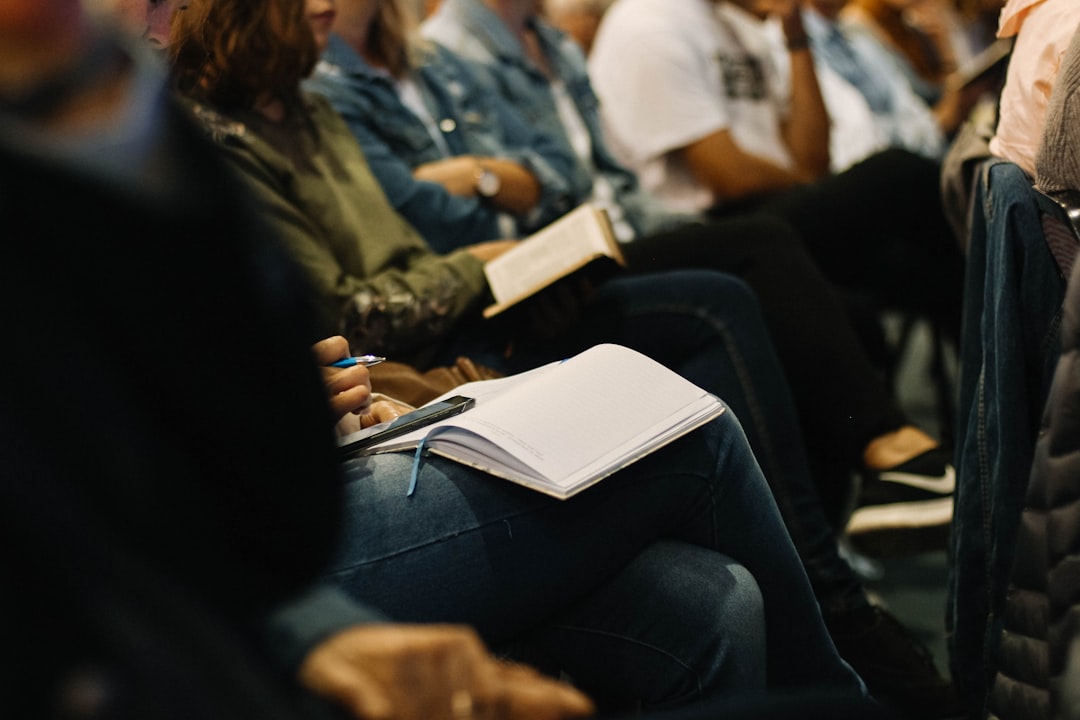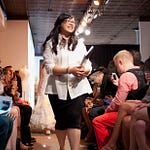Thanks for visiting! This is the Austen Connection newsletter and podcast. If you are not signed up yet you can take a few seconds to sign up for free, or support at any level - below - and get all of the conversations dropped right into your inbox. Join us!
Hello friends,
Welcome to a new weekend, a new month and a brand new season of the Austen Connection podcast, back right now with this episode!
Kicking off our third season of the Austen Connection podcast is author Nikki Payne - a novelist, tech anthropologist, and cultural observer in all things.
Dr. Payne deploys her PhD in Anthropology for her day-job as a tech anthropologist at Facebook while her love for romance, story, and Jane Austen fanfic has burgeoned into a second career: novelist.

Payne’s Jane Austen remix Pride and Protest is due out November 15th, with a second novel remixing Sense and Sensibility also forthcoming. In Pride and Protest, a remix of Pride and Prejudice, Elizabeth Bennet is revisioned as DJ Liza B, who is protesting a major development by a major developer named … Dorsey Fitzgerald. We see where this is going!
Nikki Payne says her favorite romances involve two people coming together across racial, ideological, and cultural divides - and that’s what makes a slow-burning and burgeoning connection intensely exciting.
In this conversation Payne talks with us about how the stories we tell - our “cultural production” - shape our view of our history, our desire, our lives, and our world.
Here’s our conversation with Nikki Payne - on how Anne Elliot is a boiling cauldron, Emma is a mess (but we love her anyway), Shakespeare’s original hate-to-love romance, and how writing romance across boundaries can shape and change the world. Oh yes, and how for Nikki Payne the “classy, bougie, ratchet” vibe of musician Megan Thee Stallion is all about paying the bills, meeting and defying expectations, and navigating your way through to your own brand of desire and style - and all of that is so very Jane Austen.
Enjoy!
Plain Jane
Welcome to the Austen Connection, Nikki.
Nikki Payne
Hey, happy to be here. All things Austen I love.
Plain Jane
Wonderful! Let's talk about the novels. Your second [forthcoming novel] is a remix of Sense and Sensibility, which is further down the road. But Pride and Protest is this first Jane remix that's coming out [in November] that makes Elizabeth Bennet into Liza B, a DJ who - quote - “gives a jam.” And Dorsey - a high-end property developer whose project Liza B is protesting. Great set up. Gentrification and Jane Austen! Tell us how these characters and stories came to you.
Nikki Payne
I love this because I read Pride and Prejudice as a child. And something that I always heard, and in this space now, is that Black people don't read Jane Austen, right? We can't relate to women of leisure - we grinding! But I was Black. And I loved it.
And on top of this, as an anthropologist who studies culture and desirability, I ran across this interesting article that analyzes the data from these dating apps. And what it indicated was that Black women and Asian men were the least responded to in these apps. And it was wrapped up in our kind of cultural notions of desirability - who gets to be the damsel, and masculinity. And one of the things I was so excited about when I was thinking about my love of Jane Austen was also, with Pride and Protest, I decided to remix these iconic characters, and ask, “What if we made this clever and desirable woman Black? What if we made this iconic brooding, male hero Asian? What does it change? What does it add?”
I decided to remix these iconic characters, and ask, “What if we made this clever and desirable woman Black? What if we made this iconic brooding, male hero Asian? What does it change? What does it add?”
So I fell in love with them. And the story that my DJ, Liza B, and her developer, Dorsey F, the story that they could tell together. And I think what I loved about these two characters, in Pride and Protest, Liza and Dorsey are stuck in their kind of preconceived ideas about what's right and what's correct. And they think they're at the end of their story when we meet them. But in truth, they're actually at the very beginning. And I guess that's kind of a broad theme of the book, right?
Like: Live your life like you're at the commencement of something, right? Like: Be willing to be amazed and surprised at new information.
Plain Jane
I love it. So, Liza B and Dorsey are at the beginning. But what you're finding in their pride and their prejudice, you know, you're going so much deeper, just from your what you've already just said … about desirability. Tell me more about that. Do you feel like what's going on and [with the data with that study] that you were looking at on social, on apps, dating apps, is culture writing our impressions? Culture creating this? So you're sort of changing the culture, changing the template to say: This is not what anybody necessarily expects. So let's change it for everyone for all of us?
Nikki Payne
I love that you say that because a lot of our culture is, it's the stories that we tell each other. But also, it's our cultural production. What movies are we making? What books are we reading, right? Like that is part of the stories that we tell ourselves about what's right and what's correct.
And sometimes even the presence of a different thing can change the entire canon of what people see as possible and, like, imaginable. This kind of representation matters. But also, I also wanted to make these characters highly desirable. Because of those notions, those kinds of cultural ideas of who gets to be this damsel in distress or who gets to be this amazingly attractive leading man, right?
So I did crank up those notions of desire and desirability. It’'s definitely, it's got all the spices.
Plain Jane
You have on your website somewhere: If you love Jane Austen, and you've got spicy sauce in your handbag, this is for you.
Nikki Payne
Yeah, absolutely! So it was, like, active for me to crank up the desirability for these characters because I felt like I was doing some work there.
Plain Jane
You know, and that is work. That is work. It is hard work to create joy, and … our joy and our stories are something that's reflecting something very important. And when it's about women that's also important: female consciousness. This is all work. And it's all important, even as it brings joy. And the classic male writers have also been about desire and joy, from Dickens to Shakespeare. Shakespeare did a lot, but a lot of what he did was love, family, relationships, joy, and we call him a philosopher and a humanist and a genius. And Jane Austen is also all of those things.
Nikki Payne
Absolutely. One of my favorite Shakespeares is Much Ado About Nothing. And it is essentially a classic enemies-to-lovers. But it's about these people who are forced to change their minds about someone, right?
There's such a story there. There's such an enduring trope about thinking you know everything there is to know about someone and allowing yourself to be pleasantly surprised and experience joy as a result of that pleasant surprise.
One of my favorite Shakespeares is Much Ado About Nothing. And it is essentially a classic enemies-to-lovers. But it's about these people who are forced to change their minds about someone, right? There's such a story there. There's such an enduring trope about thinking you know, everything there is to know about someone and allowing yourself to be pleasantly surprised and experience joy as a result of that pleasant surprise.
Plain Jane
Yes, and I love that Much Ado About Nothing example because they're also, like, prodded on by their friends. It's so contemporary. They're making such fools of themselves.
You say something, Nikki, that is amazing: that your books are cultural commentary for the hopeless romantic. How are your books cultural commentary for the hopeless romantic?
Nikki Payne
I've read a lot of romance. I cut my teeth on old-school racially problematic Joanna Lindsey. I have just probably read them all, probably too young to read them all. And one of the things that I love about romance is its ability to center a woman's desire and pleasure. Like, yes, this is important. And this is why she loves him because of these things that this character does for her.
But also the one thing that I felt that we could push a little bit in romance, I understand that romance is escapism but we could poke a little bit more fun at what we're seeing in society, right? Sometimes we don't have to eat the tropes, just because they're [there]. I mean, I don't have to eat all the buffet at the table. There can be instances where we can get tongue-in-cheek about it.
So what I love about Jane Austen was that she told an endearing love story, and it's swoon-worthy. But she was taking her shots, honey. She was getting her shots in. And everyone's saying, “The shade of it all, the shade!” She is a shade queen.
And that sharpness of commentary doesn't have to be devoid of romance. And that's the thing that I just love about Jane Austen. And the thing - I'm not going to say that I did as perfectly as she did - but I definitely wanted to incorporate that side-eye with the swoon.
So what I love about Jane Austen was that she told an endearing love story, and it's swoon worthy. But she was taking her shots, honey. She was getting her shots in. And everyone's saying, “The shade of it all, the shade!” She is a shade queen. And that sharpness of commentary doesn't have to be devoid of romance. And that's the thing that I just love about Jane Austen.
Plain Jane
Wow … You are so good at just connecting these deep themes to our culture, you know, like in our lingo. And I love that. And another thing that's your tagline, along these lines, is: classics, bougie, ratchet. Okay, this is almost too pop-culture for me to get. But I do recognize that immediately because I go to a gym. I get my Megan Thee Stallion and savage, bougie, ratchet, and I love that refrain that she's doing there. And you've adapted that refrain to classics, bougie, ratchet. How are you bringing the bougie, ratchet vibe to Jane Austen? And in some ways, you’re saying this: How does Jane Austen herself [bring] that bougie ratchet vibe?
Nikki Payne
First of all, I love this question. Because personally when I read about Jane Austen heroines, they are - except for Emma, who has her own basket of troubles - most of Jane Austen's characters are somehow either kind of financially going through it, like they have high minds and high ideals, they know what should be done. But they're in this place where they can't actually execute on their own level of expectation for their station, right?
And so when we talk about like, bougie ratchet in this connection of, “Hey, I am absolutely that bitch. However, I'm in a situation right now where I cannot be the entire person that I want to be. And how do I do that.”
Oftentimes marriage was the way to ascend to that level of, you know, Catherine de Bourgh. But these women were already kind of internally ready for the level to which they would ascend, right? But they had to go through all of this class-related bullshit, all this money, all of this kind of [thing]: Male heirs inheriting, some random male cousin inheriting all their money, in order to get, in a sense, to their essential spot.
[M]ost of Jane Austen's characters are somehow either financially going through it, like they have high minds and high ideals, like they know what should be done. But they're in this place where they can't actually execute on their own level of expectation for their station, right? And so when we talk about like, bougie, ratchet in this context of, “Hey, I am absolutely that bitch. However, I'm in a situation right now, where I cannot be the entire person that I want to be.”
Plain Jane
I love it, that you you connect to the bougie, ratchet vibe to basically money, today. And then also in Jane Austen. Which that in some senses hasn't changed. Like you say, the expectations put on us and that we put on ourselves for who we are, where we fit in, how we're accepted, and what power we have and what agency we have. And you said something else, Nikki, which is: internally, internally, they're ready. And I love that because I think that is so much what's going on with Jane Austen, too. Which is that they can control themselves, they can control their own inner resources. And what they can't control is everything you're describing that are outside, outer pressures and forces in society. Which are in every [heroine], like you say. Except Emma, which is the inverse. So [Emma’s] also about power. but it's just that the heroine has it, which is powerful in itself, to show that. But it's always about power, and goodness, and what we do with our power. And I feel like a lot of times we recognize Jane Austen for showing these profound things when it comes to family and love and relationships. But she's also showing us - and you're a great person to say this with - she's showing us power and agency in society. She is also making a commentary on the basis for our culture and society as well.
Nikki Payne
Absolutely. One of my favorite Jane Austen heroines is Anne Elliot. And Anne's been through the wringer lately …
Plain Jane
She's lost that bloom …
Nikki Payne
She's lost that bloom. But what I love about her is that externally everyone like puts all these things on Anne, and she's just [the] middle kid and her sisters think of her this way, her father thinks of her this way, and everyone's just like, “Oh, poor Anne.”
But internally, she's kind of a boiling cauldron. You know? Like she's, she's kind of low-key bitter. You know?
Plain Jane
And sad. Profoundly sad.
Nikki Payne
And roiling with emotion. She's feeling things and with such depth and emotion. And that distance between the way people see Anne and the way she is experiencing them, and herself, is just miles away.
And so many women live that way. In that double consciousness. … So many people of color live that way. Of having to put on this face for their boss or for their husbands and family and being forced to be a whirling, like, thunderstorm inside. And I just think people relate to her because they've been in this instance where you’re just about four or five seconds from, like, internally I am about to blow.
But all they see is a smooth surface of helpfulness. “Oh, she's very practical. She's very useful. She's very capable.” Right?
But Anne Elliot, she had her commentary on all of her family. I mean, she had their number.
[S]o many women live that way. In that double consciousness. … So many people of color live that way. Of having to put on this face for their boss or for their husbands and family and being forced to be a whirling like thunderstorm inside.
Plain Jane
Yes, she does. And she's a badass in spite of everything you described, and even more of a badass because she's been harmed by everyone around her. She's being harmed. And she's still going, like you said, you put it so beautifully, just going in this smooth sailing on the outside.
What you're making me realize [is] something about Persuasion and that story, which is really powerful, which is that we see Anne through that. We tend to see that as the classic love story. And we're … not necessarily talking enough about the fact that it's a journey that Anne goes through on her own. We did a post on this at the Austen Connection called The Choice. And I feel like it's so important, and really, but you're making me see it even more strongly, Nikki, which is she makes a choice before she knows Wentworth is coming back to her. She makes a choice to love Wentworth. And before she knows William Elliot's character, she makes a choice to just love Wentworth. And to be okay with the regret and sadness that she might carry with her. She makes a choice to be strong, and to just make that choice for love. And it is a really profound evolution for Anne herself. And then Wentworth shows up. But only after that …
Nikki Payne
… After she's already made the steadfast choice for herself. And love.
Honestly, she'd already done the revolutionary act, you know?
Plain Jane
Yeah, she really had. So, Nikki, you are a cultural anthropologist. You actually you have a PhD. You’re Dr. Nikki Payne.
Nikki Payne
I am. Not the useful kind.
Plain Jane
I think you're proving that wrong with everything that you say! - it's extremely useful. And it's useful enough that you are - if you don't mind us saying - you are actually employed by Facebook and the tech world to understand us and to understand humanity and our desires. And the stories we tell. … So it's useful enough that you're actually one of these people who actually is using their degree - and a lot of degree it is.
So, Dr. Payne, you are a wonderful person to ask: What is your expert takeaway right now on everything that you see … going on in romance and Austen fan communities? To me it seems like the voices in these communities are expanding and it's getting more inclusive. It might not be happening fast enough. But what do you see that is, or is not, exciting? Or what [does] there need to be better or more of going on in the fandom communities that you're engaging with?
Nikki Payne
I have seen literally the best and worst of fandom. One of my favorite authors, Abigail Reynolds (Abigail, if you're listening, I love you), Beth Massey [also], when I had this small idea and I was saying, “Oh, I'm thinking of writing,” she was one of the first JAFF authors to say, “Write it. Like, shout it to the rooftops.”
She was so engaging. I mean, I honestly could not have found my courage to write this without these trailblazing white women turning around and saying, “Write it, and and I'll bring you along as well.”
So I'll just put that out there that that community was like that. Also, Bianca Hernandez - huge, amazing support system.
However, there is this contingency of individuals who feel threatened by new changes or adaptations, right? Who feel like somehow their favorite adaptation comes under the radar, right? So let's say, you say something like, “I love bologna.” And they're holding turkey. And they're just like, “What are you saying about turkey?” And so the argument somehow is that your idea, or your way of thinking about Jane Austen will somehow replace theirs, right? It's just this fear: “I feel like I'm being replaced.”
The thing that I'm saying here is that the community can be really, really reactive to new adaptations of Jane Austen. Really reactive because at the core of it, a lot of people go back to Regency novels, go back to period pieces, to try to reflect on a time of order, right at a time where certain types of conventions were unquestioned. Seems like a cleaner, like a safer time for certain individuals. And people find comfort in that ..
Plain Jane
… and that is not historically accurate - that image, and it's not meant to be. It's not even historically accurate in Jane Austen's time, right? I mean, there's a lot that's left out. There's a lot that Jane Austen is leaving out. I think that she would be all - I tend to feel - like she'd be all for expanding it. Maybe she would, maybe she wouldn't. Who cares? If she wouldn't, she'd be wrong! So we can still take these incredible stories and these templates [and] to me, the only way they stay relevant and alive, whether it's Shakespeare or Jane Austen, is to expand the voices.
And don't you feel that so much of our view of that history, being this comforting, nostalgic, quiet, white, place, comes from adaptations? … If you read writers like Gretchen Gerzina and many other scholars …revealing Black lives of the Regency and before and after, in Britain and elsewhere. So it just makes you see even the history - it's culture writing that history. It’s culture writing that view of our history, in a way that's not accurate!
Nikki Payne
You're absolutely right! And those depictions of the past - in these really white spaces and these orderly lawns - is doing cultural work. It's doing white supremacy work as well. So I think challenging the past is still an actual futuristic take on on the world, to rewrite and reimagine Regency in its full color, right? It is revolutionary.
I think challenging the past is still an actual futuristic take on on the world, to rewrite and reimagine Regency in its full color, right? It is revolutionary.
Plain Jane
I think you just hit on really what is very key, which is reimagining the world. You know … imagination is so important in the way we are viewing our history and also our present and our future. But I think a lot of times what it comes down to is, “Do you think it comes down to systemic racism and institutionalized racism?” And everyone, wherever you are reading Jane Austen and engaging in this fandom, needs to ask yourself: Do you feel that our history contains institutional, systemic racism? And if you are not sure, you need to go and read. And you need to engage in some conversations and get a solid answer to that question. Because I think when you realize that the right answer, the answer to that question is: Yes. Then you realize that it's very powerful, it's very welcome, it's a wonderful, joyful thing to be expanding and reimagining our histories. Which is actually what Jane Austen was doing in her time.
Nikki Payne
Absolutely. And one of the things that I want to dispel for for anyone is, like, take away this like sense of harm that you have for expanding your scope. Like somehow reading this new type of book will erase your favorite 1970s Persuasion, right? Like somehow watching the Netflix version will make the 1970s one disappear. Like everyone is imagining that Jane Austen adaptations are on this hydraulic piston service that if you like this, then this one goes down, right?!
And so there's this this aspect that that expansion can't happen, right?
You can ask the Grinch Who Stole Christmas, the way he was imagining his heart; you know, the way that it expanded three times the size. It will always surprise you that there's always more room! Like - sorry about the cultural references - but like at the end of Hamilton, right? The world was wide enough?
What would happen if you just sat down said, “The world is wide enough”? Is that going to break me?
Plain Jane
Yes! Or is it going to breathe new life and relevance and new insights into our stories and our histories?
Nikki Payne
There's always room for like-minded people finding each other. No one is against that, right? Like going back to your small town and finding that person you connected with, right?
But there's a part of romance, that is the exciting part, is kind of about finding out something new, right? Or experiencing something new with someone who thinks differently. Right?
And I think this may be what is exciting about romance and loving someone - [it’s] melding these two, crazy, diverse minds together. And I think that romance has an opportunity to show us what the world could look like if we expanded our mind.
And I think this may be what is exciting about romance and loving someone - [it’s] melding these two, crazy, diverse minds together. And I think that romance has an opportunity to show us what the world could look like, if we expanded our mind.
I mean, I keep saying this over and over: But Liza and Dorsey is a classic example of imagining that this person was a certain way. This isn't a spoiler but when, in my Liza first meets Dorsey, she mistakes him for the help. Because she has this expectation of this big boss person to be white, you know? And she just completely mistakes him. And it's her own notions of this and his own notions of who she must be in this neighborhood, that immediately trip them up. [And] they have to get over it.
And that's the work of engaging with anyone outside of your social circle: What do I think about you? And how was that challenged by me just knowing it?
Plain Jane
That's awesome. What was your first encounter - you said, as a child? - what was your first encounter with Jane Austen? And what was that reaction like?
Nikki Payne
Oh, man, my first encounter with Jane Austen-lite was Clueless. I was obsessed. I wanted to be Cher. She had this diverse set of friends and she was really rich. …
And then I found out that that was an Emma adaptation and I'm like, “Emma, who was Emma?”
And then I started reading Emma. Emma was my first Jane Austen. And as a young person, I loved her. As a 40-year-old woman, I'm just like, “No.” I’m graduated to Anne, and it's my favorite heroine.
But I loved how sure of herself [Emma] was and she just gave me so much confidence to just say it, you know? Maybe you'll get slapped on the hand. But say what you feel.
In a way that she just knew her little corner of the world. And as a teenage girl that's hard to get. It's hard to get that level of confidence about yourself. So I just loved Emma, I loved it.
Plain Jane
And it's okay to like make cringing mistakes. This is an entire classic novel about someone just making cringing mistakes. And somehow it survives 200 years and we're reading about her. So I guess, in my little high school life I'm okay. So it is a great high school novel.
Nikki Payne
It really was. And then from there, I read Pride and Prejudice. And, you know, this all came out around the same year. It's like 1995. … I was just awash in Jane! I mean, it was like, insane levels of Jane Austen coming our way.
So I just started reading these books and watching all the classic mini-series, seven parts, breathless. I was just obsessed.
Nothing made me feel more protected. I just kind of had a tumultuous background, with a lot of, you know, chaos and disorder. But nothing made me feel calmer than the cool attentions of Mr. Darcy, you know? He was just so attentive to her. But also just not, you know, over the top.
I just loved how he loved her. Because it was perfectly calibrated to Elizabeth Bennet, you know?
Plain Jane
Yes. And it seems like, you know, when you're engaging in Pride and Prejudice you're engaging in a story that encapsulates these wonderful things that you just described. But then also acknowledges and then even translates into humorous passages, the challenges of disparity - disparities, marginalization. That feeling. coming from where you were coming from Nikki with, like you said, a background where you felt like it was chaotic, and where you weren't finding that structure. Do you feel like Jane Austen and those stories have a way of really speaking to readers?
Nikki Payne
Yeah, me personally, I just loved the sense of rules of engagement, of decorum. If you love someone … all of these tiny rules that everyone had to manage and actually increase the angst, right?
Because you had to go through this many hoops. And to this day, I never like insta-love romance, right? I love the incremental realizations of love. Slow burn. Oh, man! Jane Austen has ruined me for the, you know, the slow burn.
Plain Jane
But hearing you say that Nikki, and then I'm always mindful of your expertise in this conversation as a cultural researcher, you're making me realize something, which is: These rules of engagement, as you put it, translate 200 years and it's striking me that they were very much up for debate during Jane Austen's time, right? Like we see plenty of bad examples, with Mr. Collins and Darcy's first proposal, even very harmful examples. There’s … plenty of chaos even … in Jane Austen's time. But she builds in this thing that 200 years later, is a very current thing, which is: consent. It's like these heroes and heroines of every gender, the people, the humans, in Jane Austen are just engaging in a way that's playful and challenging. And also, they're strong enough to be respectful. It's incredibly romantic.
Nikki Payne
Oh, it's incredibly romantic. It really is.
Plain Jane
Tell me about the writing process and writing all of this into contemporary life.
Nikki Payne
Oh, man, I enjoyed writing this so much. It was honestly quite the escape. A lot of people will say, “Oh, you know, you work, you have this family - how do you have time to write?” And sometimes my answer is, “What do you do if you don't write?”!
And so for me, writing just saved me. It saves me every day. It is absolutely my saving grace.
So I love, love, love imagining my characters. Like thinking about the main characteristics of Elizabeth Bennet or my character Liza B. and their sense of place in the world.
And they're kind of judgmental. One of the worst things you can do for a judgmental character with a high charm equivalent is put them with a super awkward person who doesn't outwardly show who they are at first, right?! And that's a recipe for disaster.
So the thing that I tried to do in writing is, What is the worst possible thing that can happen to this type of person? What is the worst possible thing that can happen to a bubbly, vivacious character? Like Marianne, you know? Like, what are the types of things that can happen?
Because what I'm trying to do is actually tease out their arc. Their worst fears have to come to light in the book, in order for them to be, on the other side, a better person. They can't stay the way they were when we started.
Plain Jane
What a wonderful thing to do with story and art and fiction. And it really does sound like such a joy. And I can't wait to encounter these characters.
Nikki Payne
Yeah, I can't wait for you to.
—---
That’s our conversation with author Nikki Payne - which you can also hear by simply pressing Play above, or by following the Austen Connection podcast wherever you get your podcasts.
We love Nikki Payne’s riff on how Jane Austen unleashes the “classy, bougie, ratchet” energy - it’s about class, it’s about paying the bills, it’s about expectations, it’s about desire. And it’s about getting what you want and being what you want to be, in a world that makes that super difficult.
We love Nikki Payne’s riff on how Jane Austen unleashes the “classy, bougie, ratchet” energy - it’s about class, it’s about paying the bills, it’s about expectations, it’s about desire. And it’s about getting what you want and being what you want to be, in a world that makes that super difficult.
But what did you think? Weigh in!
Keep a lookout for upcoming season-three podcast episodes coming at you soon, featuring: designer Jennyvi Dizon, “Rational Creatures” creators Ayelen Pagano and Jessamyn Leigh, musicologist Stephanie Shonekan, and What Matters in Jane Austen author Professor John Mullan - all rolling out in the coming weeks. Stay tuned!
If you are new to the Austen Connection podcast, there are two seasons and 12 other conversations for you to enjoy - find them right here at Substack/Austen Connection, and/or they also somehow magically make their way to Spotify and Apple and probably wherever you get your podcast. Thanks for listening!
Have a beautiful weekend, full of beauty, bougie, and Jane Austen.
Yours ever,
Plain Jane
Cool links and community:
Find out more about Nikki Payne’s Pride and Protest and sign up for her newsletter here.
You can also preorder Pride and Protest here, (preordering a book is one of the best things you can do to support it!) and you can engage with Nikki Payne’s smart cultural fun on Twitter and Instagram.
Historian Gretchen Gerzina is the author of many books and a BBC series excavating the stories of Black lives in British history. Here’s her website. Oh - and she also has been a guest on this Austen Connection podcast episode.
Here’s how to find work by Abigail Reynolds, whom Nikki Payne refers to in this conversation: https://www.amazon.com/Abigail-Reynolds/e/B001JRZP8K%3Fref=dbs_a_mng_rwt_scns_share
And Beth Massey’s books can be found here: https://www.amazon.com/Beth-Massey/e/B007S8YL84%3Fref=dbs_a_mng_rwt_scns_share
Also mentioned in this conversation is Bookhoarding by Bianca Hernandez-Knight, who also produces the marvelous VirtualJaneCon.
Any Louise Penny fans out there? We guess there are a few of you - and if you haven’t discovered this author and the community of Three Pines, you are in for a treat. Here to help you along the way is a really fun special project, Notes from Three Pines, for Penny readers and followers. You can sign up and the conversations will come right to you!
We don’t want to be mean, in this conversation, about the many adaptations that we love, including those from PBS and the BBC that are iconic. We welcome more diverse casting and inclusive storytelling that incorporate a more realistic, as well as imaginative, revisioning of history in our adaptations. But, public television is wonderful overall, and it’s PBS and the BBC that will take us forward. So: all that said, here’s the new trailer for season 3 of “All Creatures Great and Small”!
If you enjoyed this conversation and post, go ahead and share it with a friend!











Share this post